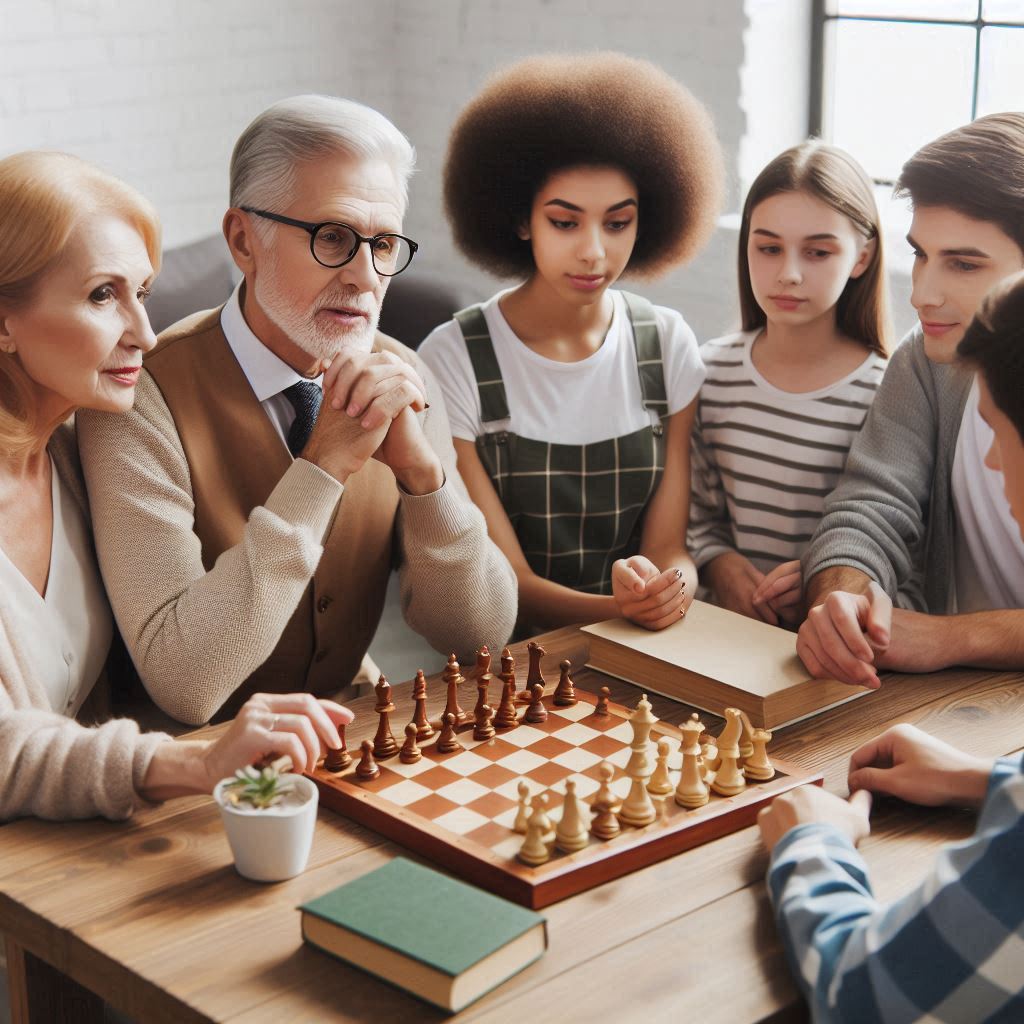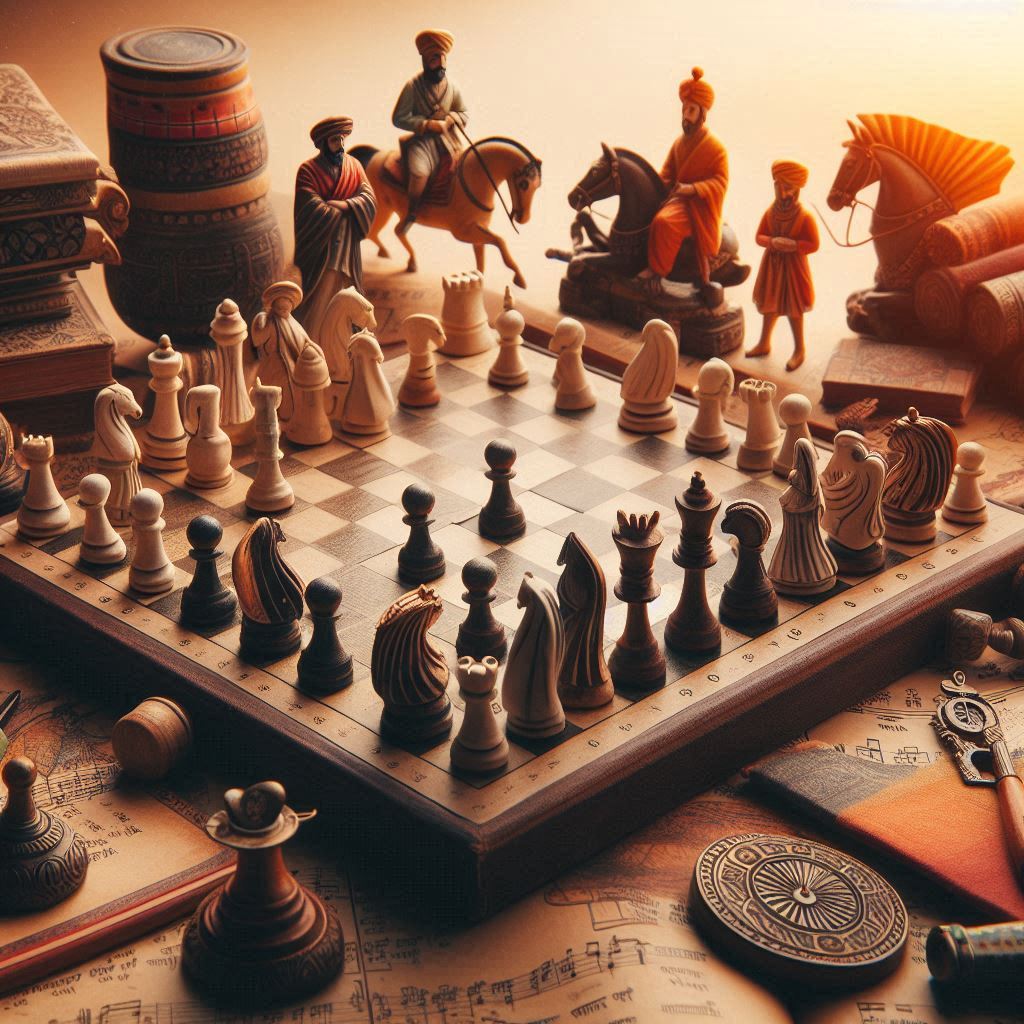Introduction
Chess, often referred to as the “game of kings,” is much more than a pastime. It is a powerful tool for developing logical thinking. This article explores how teaching chess can significantly enhance logical thinking skills, delving into the cognitive and practical benefits of this ancient game.
Thank you for reading this post, don't forget to subscribe!Understanding Chess
Basics of Chess
Chess is a strategic board game played between two opponents. Each player controls 16 pieces: one king, one queen, two rooks, two knights, two bishops, and eight pawns. The objective is to checkmate the opponent’s king, putting it under threat of capture with no possible escape.
Elements of Chess Gameplay
The game involves various elements, including opening strategies, mid-game tactics, and endgame techniques. Each phase requires different skills and strategic approaches.
Understanding Logical Thinking
Definition
Logical thinking involves reasoning systematically, analyzing information, and making decisions based on evidence and logic rather than emotions or intuition.
Importance in Everyday Life
Logical thinking is crucial in everyday decision-making, problem-solving, and critical analysis. It helps individuals make informed choices and approach challenges methodically.
Application in Various Fields
Fields such as mathematics, science, engineering, law, and even creative industries benefit from strong logical thinking skills.
The Cognitive Benefits of Chess
Enhancing Memory
Chess improves memory by requiring players to remember various positions, strategies, and opponents’ moves. This enhancement in memory skills translates to better retention of information in other areas.
Concentration
The game demands intense focus and concentration, as even a minor lapse can lead to a significant disadvantage. Regular practice in chess helps improve overall concentration levels.
Problem-Solving Skills
Chess is essentially a series of problems that need solving. Each move presents a new challenge, enhancing players’ ability to think critically and solve problems efficiently.
Pattern Recognition in Chess
Identifying Patterns
Chess players learn to recognize patterns in their opponents’ moves and anticipate future actions. This skill is crucial for making strategic decisions.
Using Patterns to Make Strategic Decisions
By recognizing patterns, players can devise strategies to outmaneuver their opponents. This ability to see and use patterns is directly applicable to logical thinking and problem solving in real-life situations.
Strategic Planning and Foresight
Planning Moves Ahead
Chess requires players to plan several moves ahead, considering various potential responses from their opponent. This strategic planning enhances foresight and long-term thinking.
Anticipating Opponents’ Moves
Understanding and anticipating the opponent’s possible moves helps in creating effective strategies. This foresight is a crucial component of logical thinking.
Cause and Effect Relationships
Understanding the Consequences of Moves
Every move in chess has consequences. Players must think ahead about how their moves will affect the game, teaching them to understand cause-and-effect relationships.
Learning from Mistakes
Analyzing mistakes and understanding what went wrong helps players improve. This process of learning from errors is essential for developing logical thinking.
Critical Thinking in Chess
Analyzing Positions
Players must constantly analyze the board’s current state and consider various possibilities before making a move. This analysis fosters critical thinking.
Making Decisions Based on Evidence
Chess decisions are based on evidence and logical reasoning rather than guesswork. This practice of evidence-based decision-making is a key aspect of logical thinking.
Spatial-Temporal Reasoning
Visualizing Moves
Chess requires players to visualize the board several moves in advance. This skill enhances spatial-temporal reasoning, the ability to understand spatial relationships and the temporal sequence of events.
Understanding Spatial Relationships on the Board
Knowing how pieces move and interact on the board improves spatial awareness, which is useful in many other disciplines.
Decision-Making Under Pressure
Making Quick and Effective Decisions
Chess often requires quick decision-making, especially in timed games. Players learn to make effective decisions under pressure, a valuable skill in many real-life situations.
Managing Time Constraints
Managing time effectively while maintaining strategic thinking is crucial in chess. This skill helps players handle time constraints in other areas of life.
Developing Patience and Discipline
Importance of Patience in Chess
Chess teaches patience, as players must wait for the right moment to execute their strategies. This patience is beneficial in many aspects of life.
Practicing Discipline Through Gameplay
Consistent practice and disciplined study of chess improve self-discipline. This discipline is essential for mastering any complex skill.
Applying Chess Skills to Real-Life Scenarios
Examples of Chess Players Using Skills in Academics, Business, and Daily Life
Many chess players find that the skills they develop through the game apply to their academic studies, professional careers, and everyday decision-making. The strategic planning, critical thinking, and problem-solving skills honed in chess are invaluable in various contexts.
Case Studies and Real-Life Examples
Stories of Individuals Who Improved Their Logical Thinking Through Chess
Numerous case studies highlight individuals who have enhanced their logical thinking skills through chess. For example, many successful business leaders and professionals credit their strategic and analytical abilities to their chess training.
Teaching Chess to Different Age Groups
Tailoring Lessons for Children
Introducing children to chess can significantly boost their cognitive development. Lessons should be engaging, focusing on the basics and gradually introducing more complex strategies.
Adults and Seniors
Chess is also beneficial for adults and seniors, helping to keep their minds sharp and improve their logical thinking abilities. Lessons can be tailored to suit their learning pace and interests.
Integrating Chess into Educational Curricula
Benefits of Including Chess in School Programs
Schools that incorporate chess into their curricula see improvements in students’ cognitive abilities, academic performance, and social skills.
Examples of Successful Implementations
Several educational programs worldwide have successfully integrated chess, showing notable improvements in students’ logical thinking and overall academic performance.
Practical Tips for Teaching Chess
Effective Methods for Teaching
Use a step-by-step approach, starting with the basics and gradually introducing more complex strategies. Encourage regular practice and provide opportunities for students to play with peers.
Resources and Tools for Chess Educators
Numerous resources are available for teaching chess, including online platforms, instructional books, and software. These tools can enhance the learning experience and make teaching more effective.
Conclusion
Teaching chess offers a myriad of benefits, particularly in enhancing logical thinking. By engaging in chess, individuals can improve their cognitive abilities, strategic planning, and decision-making skills. Integrating chess into educational programs and daily routines can lead to significant improvements in logical thinking and overall cognitive development.
FAQs
How does chess improve logical thinking? Chess enhances logical thinking by improving pattern recognition, strategic planning, and critical decision-making skills.
Can children benefit from learning chess? Yes, children can significantly benefit from learning chess, as it boosts their cognitive development and logical thinking abilities.
Is there scientific evidence supporting the cognitive benefits of chess? Numerous studies have shown that playing chess enhances cognitive functions, including memory, concentration, and problem-solving skills.
How can I start teaching chess to beginners? Start with the basics, such as understanding the pieces and their movements, and gradually introduce more complex strategies. Encourage regular practice and provide engaging lessons.
Are there online resources for learning and teaching chess? Yes, there are many online platforms, instructional books, and software available for learning and teaching chess effectively.
Can adults also improve their logical thinking through chess? Absolutely, adults can enhance their logical thinking, strategic planning, and decision-making skills by engaging in chess.



